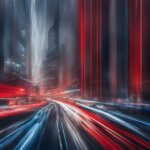Table of Contents
In a groundbreaking move, the European Union has taken a monumental step in the field of artificial intelligence (AI) by establishing the world’s first comprehensive regulations. This historic achievement marks a significant milestone in the development of AI governance and sets a global precedent for the industry.
With the advent of AI technologies, there has been an increasing need for clear guidelines and policies to ensure responsible and ethical practices. The European Union’s commitment to addressing these concerns demonstrates its dedication to safeguarding both the local market and the future development of AI.
The newly established “Artificial Intelligence Act” classifies AI applications into different risk categories, paving the way for tailored regulatory rules. From the stringent provisions for generative AI models like ChatGPT, to the rigorous assessments for high-risk AI applications, the regulations aim to strike a balance between innovation and ensuring human safety.
Transparency requirements are among the key provisions outlined in the AI Act. This ensures that AI systems operate in a transparent manner, promoting trust and accountability. Furthermore, the legislation prohibits the use of AI systems that pose an unacceptable risk to human safety, including those that manipulate technology or evaluate individuals based on personal characteristics.
The impact of these pioneering regulations is not restricted to the European Union alone. As a global leader in AI regulation, the EU’s comprehensive framework is expected to influence AI policies and legislation around the world.
As we embark on a future where AI technologies continue to shape our society, it becomes imperative to foster global dialogue and consensus-building on AI governance. Collaborative efforts will be crucial in addressing the challenges and complexities associated with this rapidly advancing field.
The establishment of the world’s first AI regulations is a testament to the power of collective action and serves as an inspirational example for nations to follow. By embracing the responsible development and deployment of AI, we can unlock its immense potential while upholding ethical standards.
Key Provisions of the Artificial Intelligence Act
The AI Act, a groundbreaking regulation, takes a risk-based approach towards governing artificial intelligence (AI) applications, focusing on their usage rather than the technology itself. By implementing different regulatory requirements based on the risk levels associated with AI applications, the legislation aims to strike a balance between innovation and safeguarding against potential risks.
Under the AI Act, low-risk AI applications, such as content recommendation systems, are subject to lighter regulations. They are required to disclose the use of AI, fostering transparency and enabling users to make informed decisions.
On the other hand, high-risk AI systems, like medical devices, face stricter obligations to ensure safety and trustworthiness. These requirements include using high-quality data and providing clear user information, minimizing the potential for harm.
Furthermore, the AI Act prohibits certain AI applications that pose an unacceptable risk. Social scoring systems and specific forms of predictive policing are among the banned applications, demonstrating the legislation’s commitment to protecting individual rights and societal well-being.
Law enforcement agencies’ use of AI-powered remote biometric identification systems is also strictly regulated in the AI Act. Such systems can only be employed for serious crimes, ensuring that human rights are respected and privacy is safeguarded.
Violations of the AI Act can result in significant fines, emphasizing the seriousness with which compliance is treated. This not only encourages adherence to the regulations but also demonstrates the commitment of lawmakers to enforce accountability in AI practices.
The AI Act, once approved by European lawmakers, will set a precedent for AI regulations worldwide. Its comprehensive provisions and risk-based approach may inspire other countries to adopt similar frameworks and establish global standards to effectively govern AI applications.
AI Regulation Provisions in the Artificial Intelligence Act
| AI Risk Level | Regulatory Requirements |
|---|---|
| Low-risk | Disclosure of AI usage |
| High-risk | Use of high-quality data Clear user information |
| Prohibited | Social scoring systems Specific types of predictive policing |
| Biometric identification | Restricted to serious crimes |
| Fines for non-compliance | |
Global Implications and Other AI Regulation Efforts
The introduction of the Artificial Intelligence Act by the European Union (EU) is expected to have a significant impact on AI regulation around the world. As a global leader in technology regulations, the EU’s comprehensive approach sets the standard for governing AI. Its stringent rules and risk-based classification system may serve as a blueprint for other countries grappling with AI governance.
While the EU takes a proactive stance on AI regulation, other major players are also making strides in this area. The United States, under President Joe Biden, has signed an executive order outlining its commitment to developing AI policies and regulations. Additionally, China has released interim measures to manage AI effectively and ensure its responsible use.
However, the AI Act does not include a complete ban on live facial recognition, which has drawn criticism from rights groups concerned about potential human rights violations. It also lacks a prohibition on the export of AI technologies that may pose harm to human rights, such as social scoring systems.
Despite these limitations, the EU’s leadership in AI regulation positions it as a frontrunner in global AI governance. Its regulations not only safeguard societal safety but also pave the way for international standards. The challenge lies in striking a balance between the aspirations of AI developers and the ethical considerations required for overall societal well-being.
FAQ
What is the significance of the European Union’s Artificial Intelligence Act?
The Artificial Intelligence Act is the world’s first comprehensive regulation in the field of artificial intelligence, showcasing the EU’s commitment to AI governance and protecting the local market.
How does the AI Act classify AI applications?
The bill classifies AI applications into four levels based on risk categories and establishes corresponding regulatory rules for each level.
What regulations apply to generative AI models like ChatGPT?
Generative AI models will be subject to strict regulatory provisions, including transparency requirements.
How are high-risk AI applications regulated under the AI Act?
High-risk AI applications will undergo rigorous assessments before being allowed on the market.
What types of AI systems are prohibited under the AI Act?
AI systems that pose an unacceptable risk to human safety, including those that manipulate technology or evaluate based on personal characteristics, will be prohibited.
How will the AI Act impact AI development companies and regulations in other countries?
The implementation of the Artificial Intelligence Act is expected to have an impact on AI development companies and may affect AI regulations in other countries, as it sets a global standard.
What approach does the AI Act take towards AI regulation?
The AI Act takes a risk-based approach and focuses on regulating the use of AI rather than the technology itself.
What are the regulatory requirements for low-risk AI applications?
Low-risk applications, such as content recommendation systems, are subject to lighter rules, such as disclosing the use of AI.
What requirements apply to high-risk AI systems?
High-risk systems, like medical devices, face stricter requirements, including the use of high-quality data and clear user information.
What AI uses are banned under the AI Act?
Certain AI uses are banned due to their unacceptable risk, including social scoring systems and certain types of predictive policing.
How are AI-powered remote biometric identification systems regulated under the AI Act?
The use of AI-powered remote biometric identification systems by law enforcement is restricted to serious crimes.
What are the potential consequences for violating the AI Act?
Violations can result in significant fines.
How will the AI Act impact AI regulation globally?
The impact of the AI Act is expected to extend beyond the EU, as its comprehensive regulations may serve as a global standard for AI governance.
What other countries have started regulating AI?
The U.S. and China have also begun their own efforts to regulate AI, with President Joe Biden signing an executive order and China releasing interim measures for managing AI.
What are the criticisms of the AI Act?
Rights groups argue that the AI Act’s failure to include a full ban on live facial recognition and the export of AI technologies that can harm human rights, such as social scoring systems, is a missed opportunity to prevent potential violations.
What role does the EU play in AI regulation globally?
The EU’s leadership in AI regulation positions it to lead the way in governing AI and setting international standards.
What is the main challenge in AI governance?
Balancing the aspirations of AI developers with societal safety remains a key challenge in the future of AI governance.













